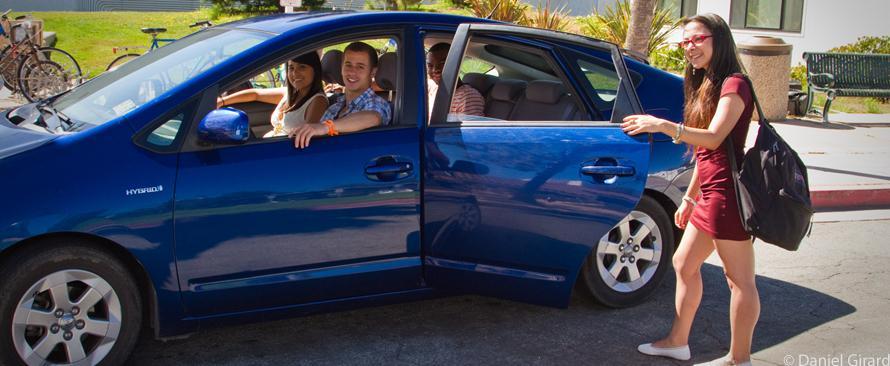By Camri Nelson cnelson@limanews.com
More individuals in larger cities may decide to utilize ride sharing services as opposed to owning a car in the future, but that does not seem the case for people who live in suburban and rural areas.
It’s a lifestyle choice, said Benard Swiecki, director of automotive communities at the Center For Automotive Research in Ann Arbor, Michigan.
Ride sharing is a car service that allows a person to use a smartphone app to arrange for a ride in a privately owned vehicle instead of a taxi. The advantage is it’s much cheaper than a taxi for a consumer, and possibly even an alternative to owning a car.
“Your conventional Lyft and Uber services are in major cities,” said Swiecki. “There is a growing usage of those services, however, it is not available in all cities and it does not make sense outside of fairly larger metropolitan areas. It really depends on where the consumer lives and their lifestyle.”
The more urban the area, the more likely an individual will be to use ride sharing or use unconventional rental companies like Zipcar, according to Swiecki. Through Zipcar they can use a vehicle for a designated amount of time and return it when they are finished without going through a rental agency.
“These are all good replacements for owning your own car,” said Swiecki. “However, if you use your car a lot as most people who live in the suburbs, rural areas and little towns do, it just would make more sense to own your own vehicle.”
Lyft, the national ride sharing company, believes that ride sharing does have a significant impact on car ownership.
“Ride sharing has challenged the idea of owning a car,” according to Gwen Belomy, Lyft spokesperson. “Lyft is playing its part to enact change by allowing people to share rides, drive less, own fewer cars, and more easily connect with public transit routes.”
Through Lyft’s annual economic impact report, it found that in 2017 a quarter million people gave up their car and 25 percent of Lyft passengers view a personal vehicle as low in importance to them.
“At Lyft, we believe in building cities around people, not cars,” according to Belomy. “By reducing individual car ownership and sharing the ride, Lyft is working towards a future where transportation ushers in positive changes in our communities and cities. We’re making a strong commitment to shared rides with a goal of 50 percent of our rides being shared by 2020.”
Reach Camri Nelson at 567-242-0456 or on Twitter @CamriNews
It’s a lifestyle choice, said Benard Swiecki, director of automotive communities at the Center For Automotive Research in Ann Arbor, Michigan.
Ride sharing is a car service that allows a person to use a smartphone app to arrange for a ride in a privately owned vehicle instead of a taxi. The advantage is it’s much cheaper than a taxi for a consumer, and possibly even an alternative to owning a car.
“Your conventional Lyft and Uber services are in major cities,” said Swiecki. “There is a growing usage of those services, however, it is not available in all cities and it does not make sense outside of fairly larger metropolitan areas. It really depends on where the consumer lives and their lifestyle.”
The more urban the area, the more likely an individual will be to use ride sharing or use unconventional rental companies like Zipcar, according to Swiecki. Through Zipcar they can use a vehicle for a designated amount of time and return it when they are finished without going through a rental agency.
“These are all good replacements for owning your own car,” said Swiecki. “However, if you use your car a lot as most people who live in the suburbs, rural areas and little towns do, it just would make more sense to own your own vehicle.”
Lyft, the national ride sharing company, believes that ride sharing does have a significant impact on car ownership.
“Ride sharing has challenged the idea of owning a car,” according to Gwen Belomy, Lyft spokesperson. “Lyft is playing its part to enact change by allowing people to share rides, drive less, own fewer cars, and more easily connect with public transit routes.”
Through Lyft’s annual economic impact report, it found that in 2017 a quarter million people gave up their car and 25 percent of Lyft passengers view a personal vehicle as low in importance to them.
“At Lyft, we believe in building cities around people, not cars,” according to Belomy. “By reducing individual car ownership and sharing the ride, Lyft is working towards a future where transportation ushers in positive changes in our communities and cities. We’re making a strong commitment to shared rides with a goal of 50 percent of our rides being shared by 2020.”
Reach Camri Nelson at 567-242-0456 or on Twitter @CamriNews
